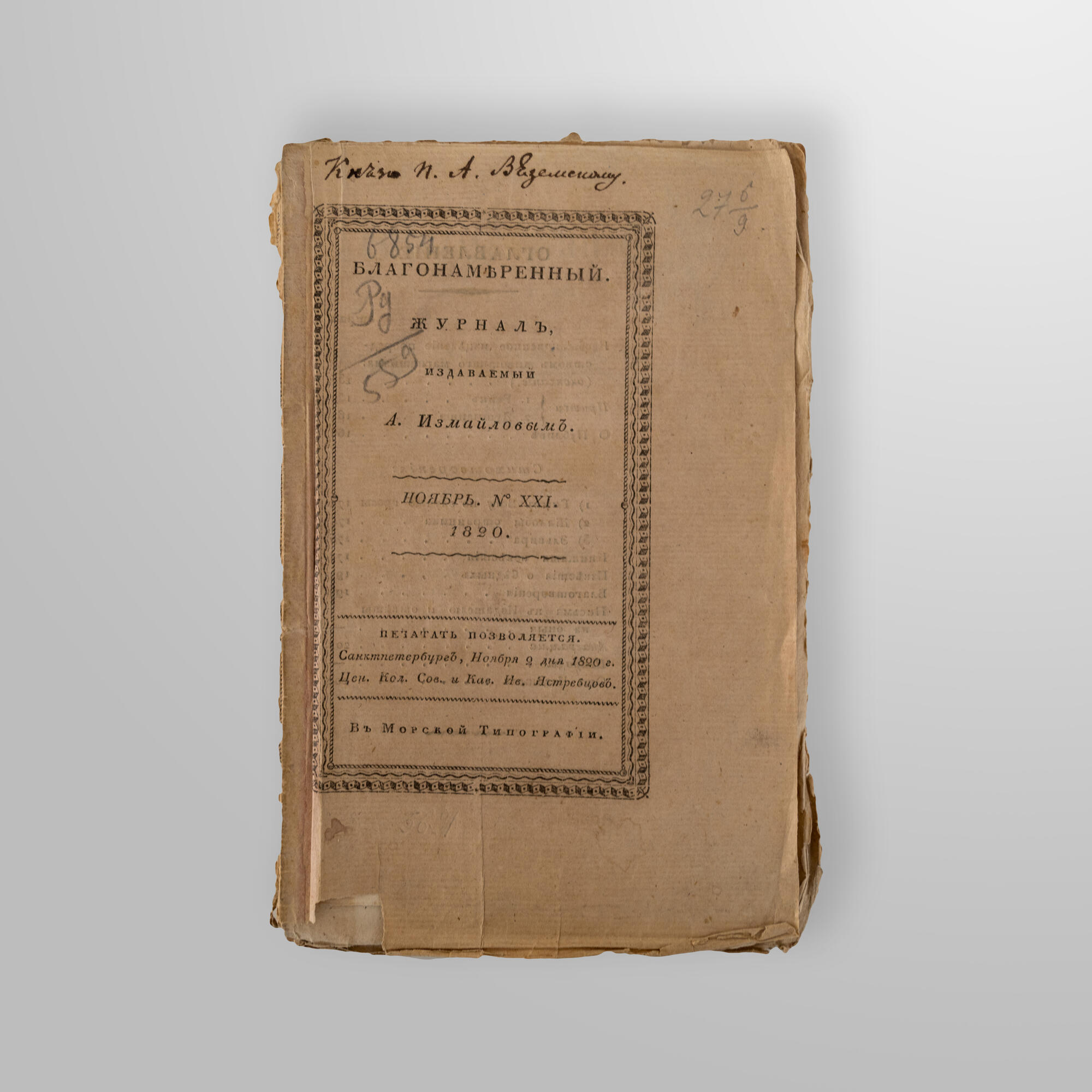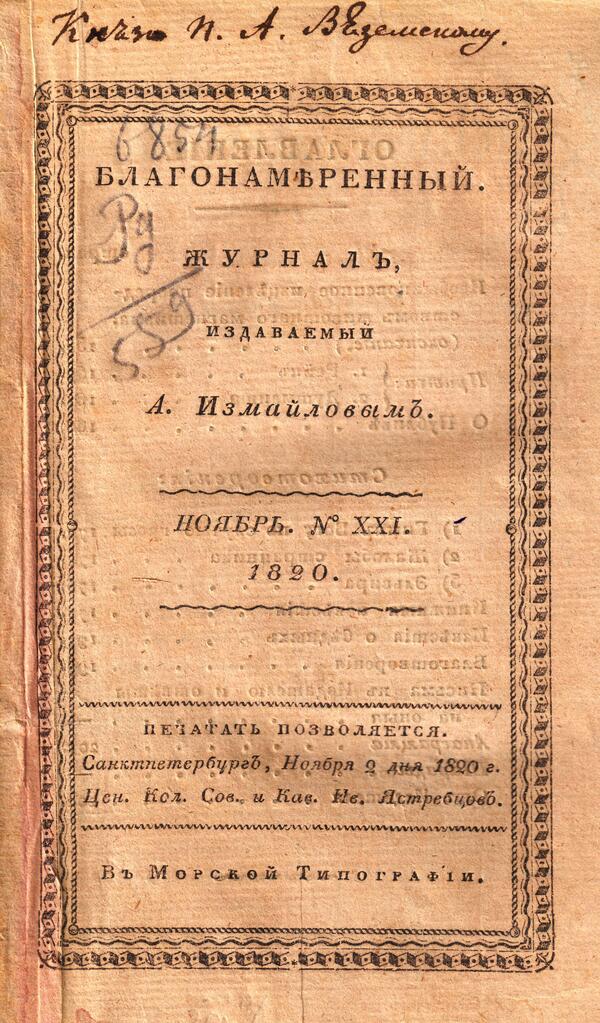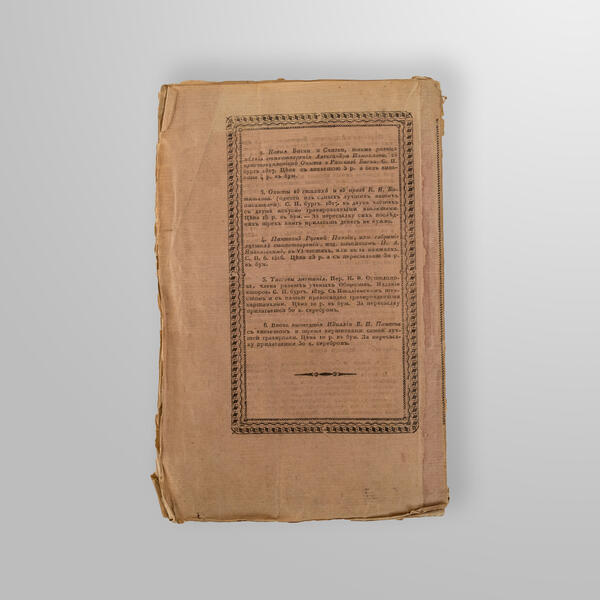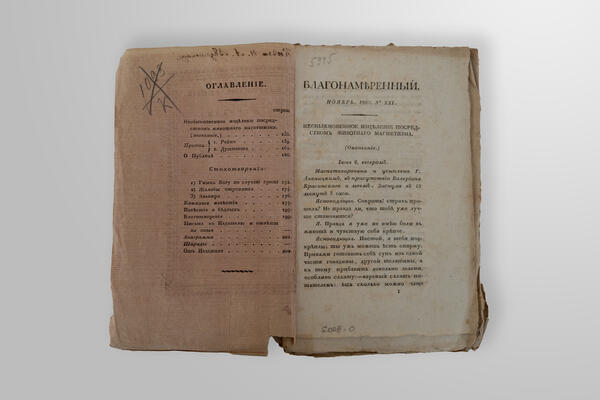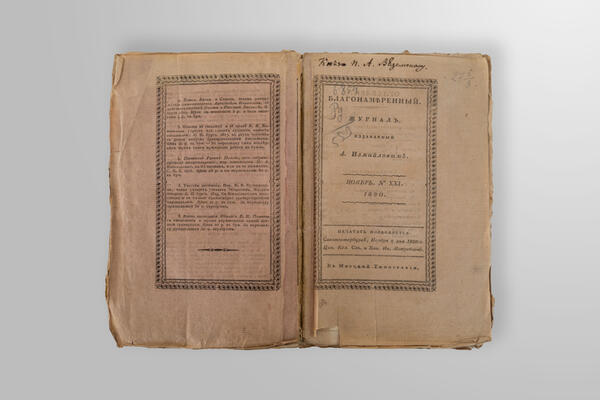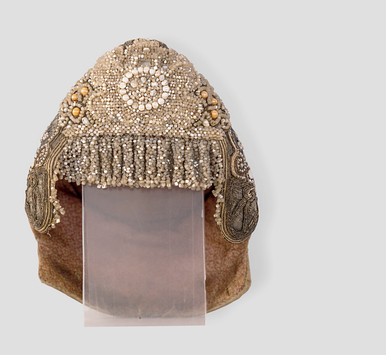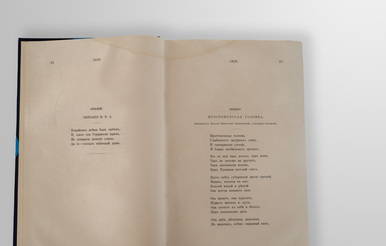The Blagonamerenny (Well-Wisher) magazine was one of the typical periodicals of the first third of the 19th century. Initially, it was the publication of the Free Society of Lovers of Literature, Science, and the Arts. From 1807, its publisher Alexander Izmaylov acted as the secretary of the Society, and after 1816 — as its chairman.
In 1818–1825, the magazine was published once a month (in 1822 and 1825 — once a week), and in 1826 — twice a month. Between 1816 and 1819, the Society was joined by Fyodor Glinka, Wilhelm Küchelbecker, Anton Delvig, Vasily Tumansky, Orest Somov, Yevgeny Baratynsky, Pyotr Pletnyov, and Alexander Pushkin. Its honorary members included Ivan Krylov, Vasily Zhukovsky, Konstantin Batyushkov, Pyotr Vyazemsky, and Nikolay Gnedich. This was the golden age of the Blagonamerenny magazine.
Alexander Izmaylov published the magazine at his own expense. For the purposes of cost saving, he edited articles and oversaw printing issues himself. However, he treated his duties lightly. The magazine was printed on low-quality paper, the issues often came out late and were distributed mostly among provincial acquaintances. The publisher responded with self-irony. He acknowledged the questionable quality of the articles and explained the delays in the magazine’s publication simply by saying that it was “the fault of the publisher who was having fun at the parties.”
In the 1820s, many talented and progressive authors left the magazine, and former colleagues started criticizing each other, not always fairly. The pages of the Blagonamerenny began to be filled with numerous theater reviews, poorly written student poems, translations of old anecdotes, drinking songs, and congratulatory messages in verse. One of the magazine’s authors was Nikolay Ostolopov who was in charge of the section of games, including logarithms, homonyms, charades, and riddles.
Anton Zherebnov cited the polemics between Blagonamerenny and Nevsky Zritel (Nevsky Spectator) where Küchelbecker published a critical review of Izmaylov’s magazine. Zherebnov commented, “Küchelbecker’s criticism was prompted by entertaining verses, ‘poetic anecdotes about drunkards, ’ and the section titled ‘Excerpts from foreign magazines and letters from correspondents to the publisher’.” According to Wilhelm Küchelbecker, all of that was unworthy of publication.
By the mid-1820s, the magazine had gained the
reputation of being “amateurish”, “amusing only for a small circle”, and
suitable only for an unsophisticated bourgeoisie and public officials.
